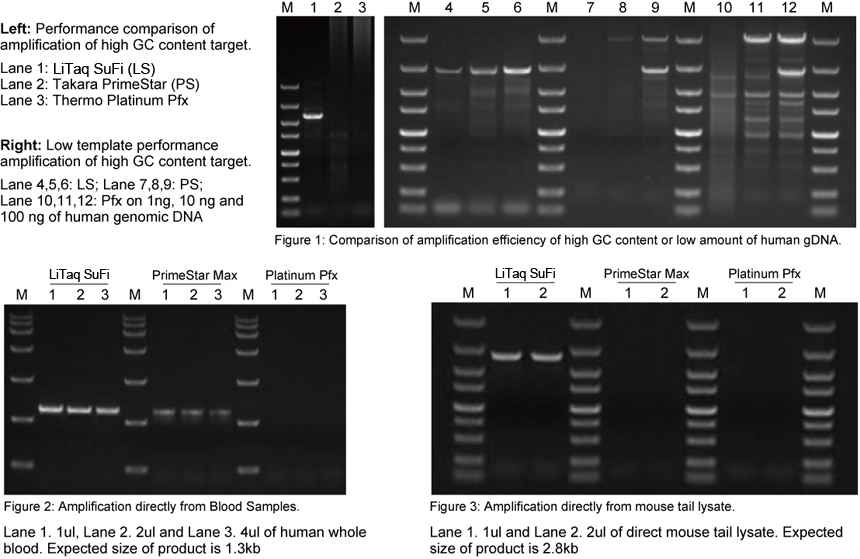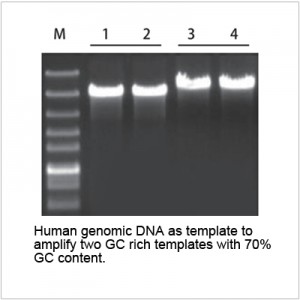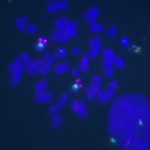LiTaq™ Ultra HiFi DNA Polymerase is a next-generation super-fidelity DNA polymerase engineered through directed evolution of LiTaq™ High Fidelity Polymerase. It delivers ultra-high fidelity (error rate 100× lower than conventional Taq polymerase) and fast amplification (5–10 sec/kb). Incorporating advanced hot-start technology and unique stabilizing factors, this high fidelity polymerase significantly enhances amplification specificity, success rate, and product yield across a wide range of templates. The HiFi Taq polymerase produces blunt-ended amplicons, making it ideal for downstream applications such as cloning with the LiClone™ Ultra One Step Cloning Kit (Cat. #: M0011).
Key Features
• Exceptional Fidelity: Over 100× higher accuracy than standard Taq DNA Polymerase.
• Fast Amplification: Extends at speeds up to 10 sec/kb.
• Broad Applicability: Ideal for routine PCR, long amplicons, and difficult templates.
• High Performance: Achieves robust amplification of fragments up to 20 kb with minimal optimization.
• Enhanced Yield: Generates high product yields even with low enzyme amounts.
• GC-Rich Capability: No buffer adjustment needed for GC-rich targets.
• Superior Specificity: Outperforms most commercially available polymerases.
Applications
• High fidelity PCR
• High yield and fast PCR
• Blunt end cloning
• Complex templates
• GC-rich PCR
• Site-directed mutagenesis
Component
1. LiTaq™ Ultra HiFi DNA Polymerase: 500 U
Storage
Store at -20°C.
Case Study
Samples: Human Genomic DNA & cDNA, Blood Samples, Mouse Tail Lysate
Product: LiTaq™ Ultra HiFi DNA Polymerase
Competitors: Takara PrimeStar Max, Thermo Platinum Pfx
| PCR reaction setup for amplification: | PCR cycling for amplification: |

From the above results, it can be concluded that LiTaq™ High Fidelity Taq Polymerase is suitable for the amplification of a variety of difficult templates. Under high GC, low template concentration and high inhibitor conditions, LiTaq™ DNA polymerase invariantly performed better than other polymerases. Although direct amplification of lysates is common practice for shorter fragments, amplification of longer fragments is more consistent with LiTaq™ DNA polymerase.


